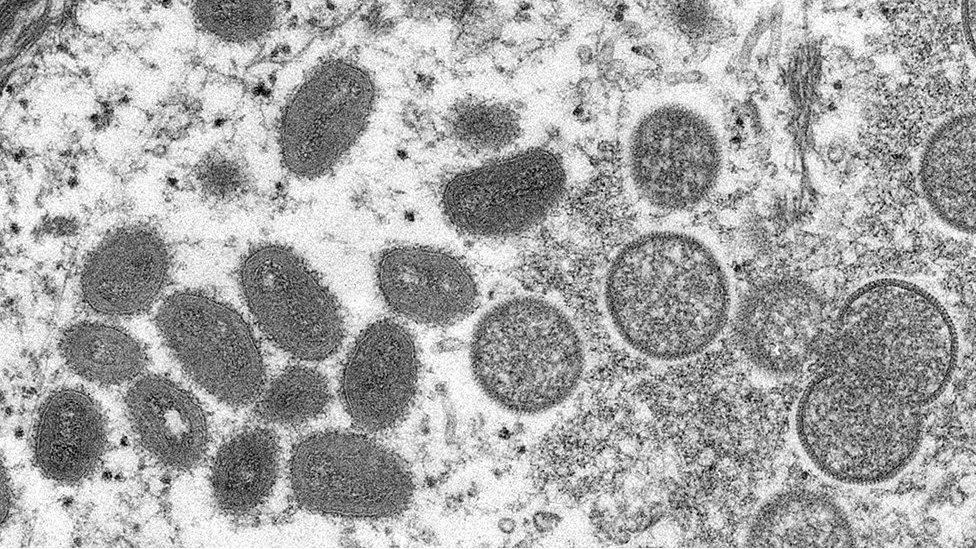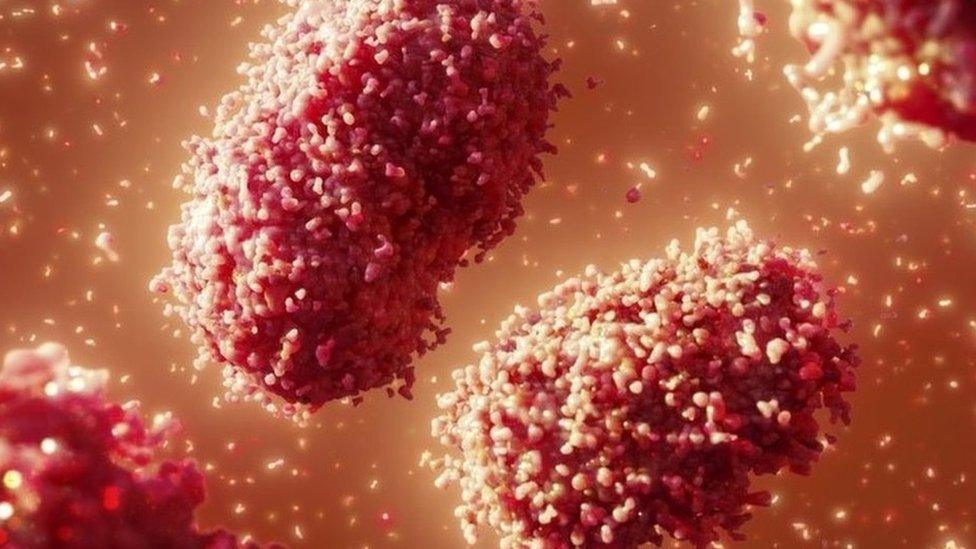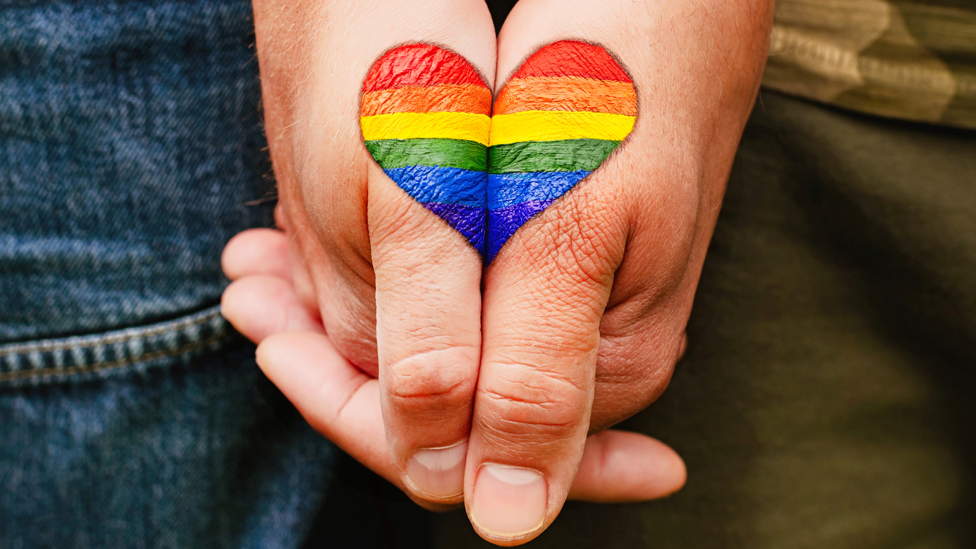Leeds Pride: Event to offer monkeypox advice and help
- Published

Leeds Pride returns for the first full in-person event since the pandemic on Sunday 7 August
Health leaders have urged people to be aware of the symptoms of monkeypox ahead of Leeds's annual Pride event this weekend.
Forty-nine cases have been recorded in the Yorkshire and Humber region, out of more than 2,700 cases UK-wide.
While anyone can get monkeypox, the majority of cases have been recorded in gay, bisexual and other men who have sex with men.
Health charities will provide help and testing support at the event.
Yorkshire MESMAC will be on hand with information on Sunday.
Chief executive Tom Doyle said: "Anyone with monkeypox can pass it on through close contact, regardless of sexual orientation, but currently gay and bi men are disproportionately affected.
"Particularly in Leeds, we're working really closely together with our NHS partners to identify people who are most at risk of monkeypox so they can be invited in for a vaccination."

Monkeypox - What are the symptoms?

Initial symptoms include fever, headaches, swellings, back pain, aching muscles.
Once the fever breaks a rash can develop, often beginning on the face, then spreading to other parts of the body, most commonly the palms of the hands and soles of the feet.
The rash, which can be extremely itchy or painful, changes and goes through different stages before finally forming a scab, which later falls off. The lesions can cause scarring.
The infection usually clears up on its own and lasts between 14 and 21 days.
Source: NHS England

The city council's health team advised people to check for monkeypox symptoms, including rashes and blisters, before going to a party or event.
Victoria Eaton, director of public health for Leeds, said: "If you think you may have symptoms of monkeypox, even if they are mild, please stay at home and contact NHS 111 or your local sexual health service for advice, your call will be treated sensitively and confidentially.
"Avoid close personal or sexual contact with others until you have had a clinical assessment."

Follow BBC Yorkshire on Facebook, external, Twitter, external and Instagram, external. Send your story ideas to yorkslincs.news@bbc.co.uk or send video here.
- Published5 August 2022

- Published28 May 2022

- Published19 March 2021

- Published11 May 2020
